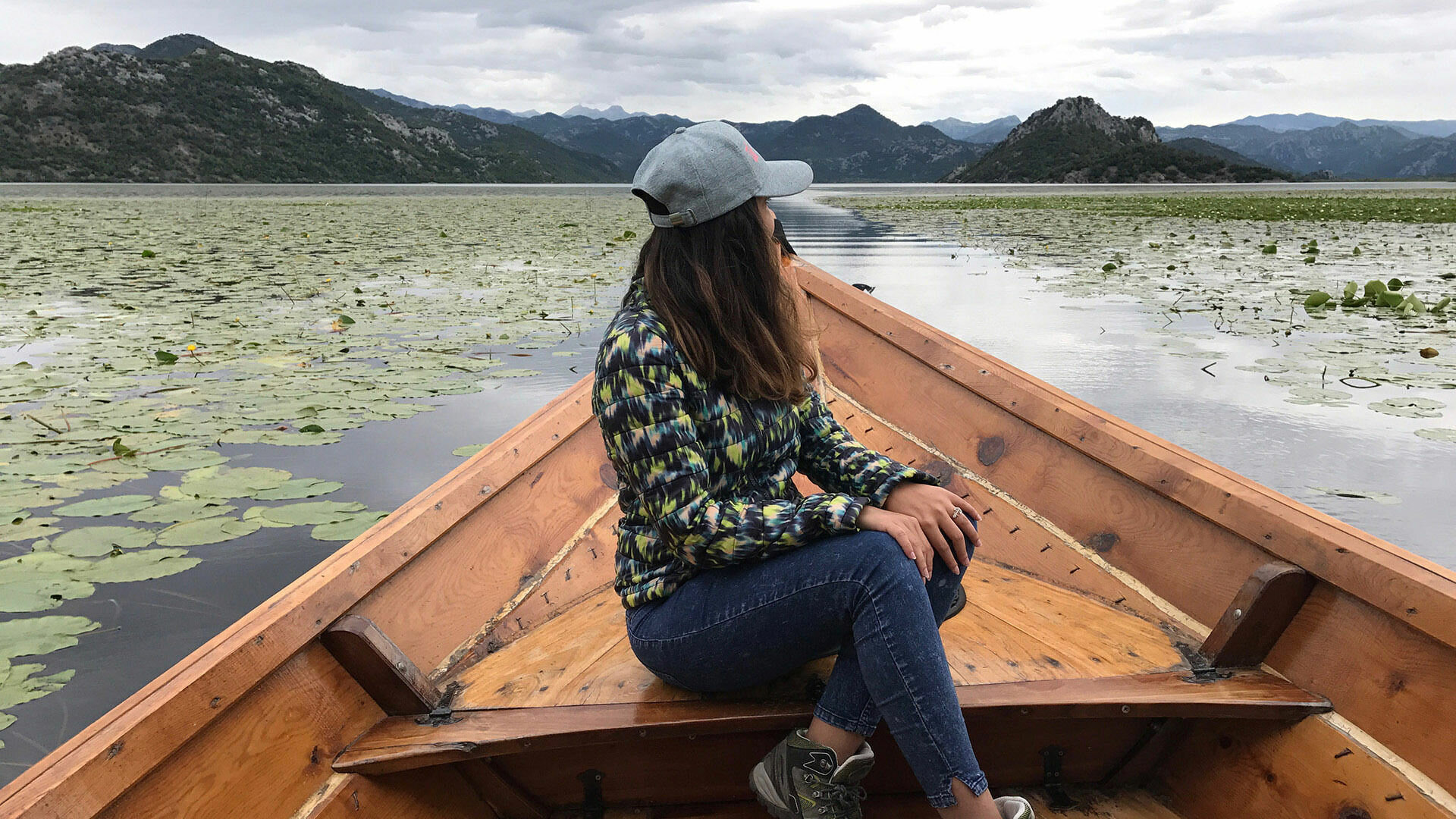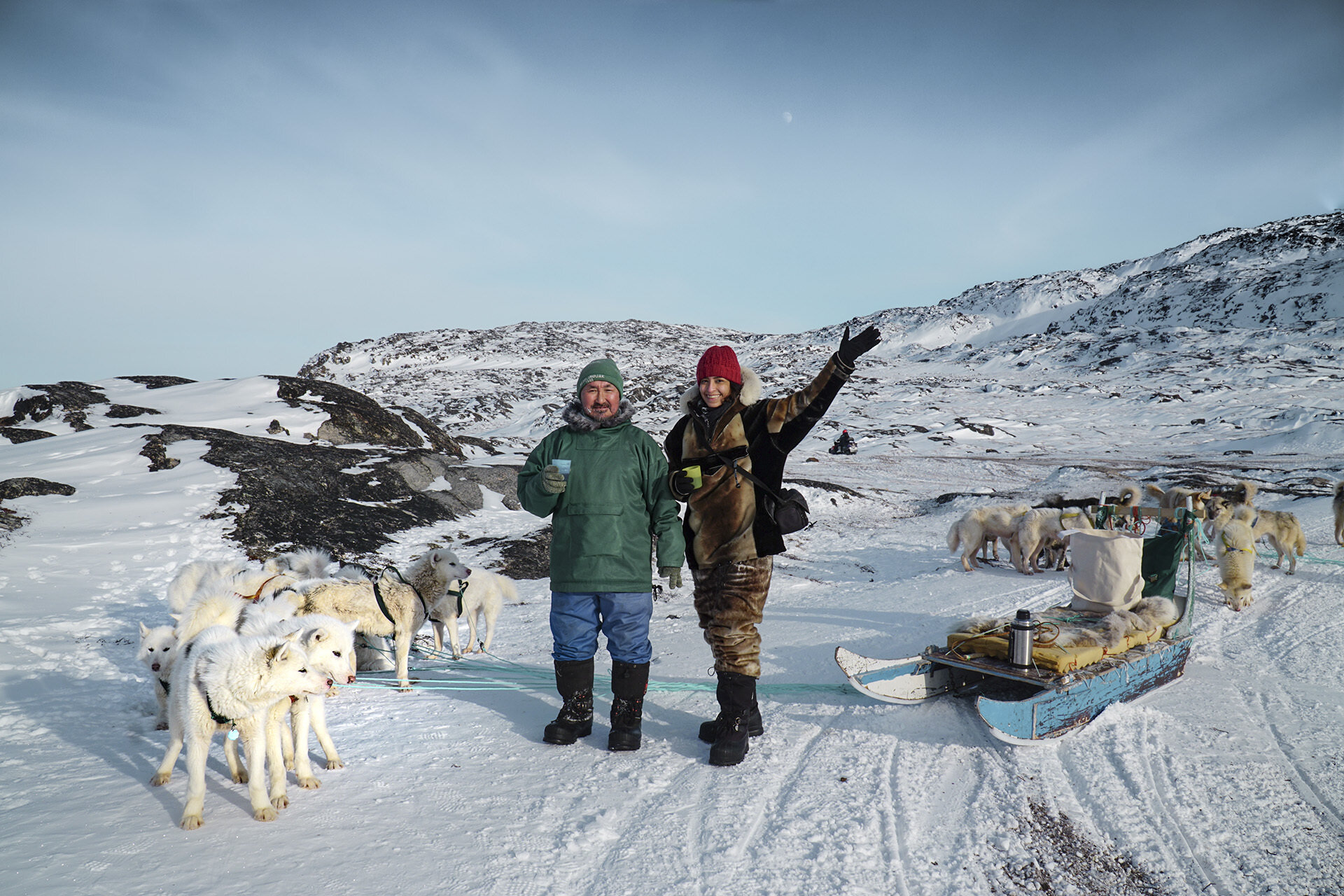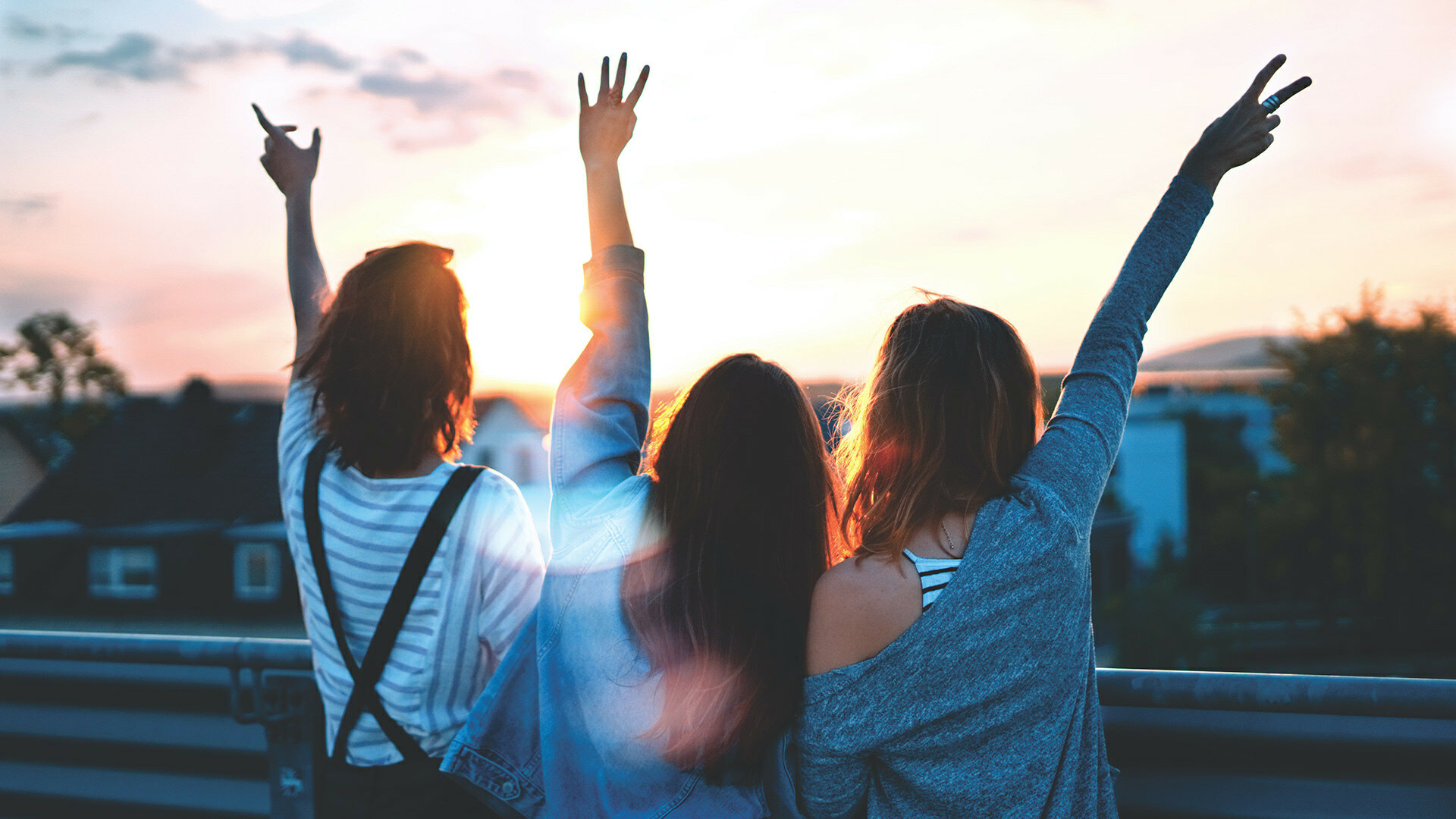Is solo travel the right choice for introverts?
“You’re not really going, are you?” my friend Siya asked, frown lines on her forehead, eyes wide open in disbelief. Just like that, the excitement of that morning transformed into a sinking feeling in the pit of my stomach. I had just told her that I was going to Bangladesh for a month, on what would be my first trip abroad. I’d been having nervous thoughts all day, but they were seasoned with optimism and a sense of achievement. “I can do this,” I’d been telling myself, but now I wasn’t so sure. Was I delusional?
At 24, in the final semester of my Master’s in Applied Finance program, I had applied to a microfinance volunteer internship in Dhaka, not really expecting to be selected. To my surprise, I found out that morning that I was being invited to join a small group of volunteers from around the world.
Siya’s response wasn’t all that unusual. Most of my friends were skeptical—they simply didn’t believe I had the courage to travel solo to a country that wasn’t exactly known for tourism. For all of my life, I’d moved through it wearing labels I hadn’t chosen, ones that others—friends, family, colleagues—had assigned to me and ones I didn’t protest or reject: words like shy, nerd, timid, reserved.
In a way, maybe they were right. I didn’t have the need for constant or forced conversation, whether it was with new acquaintances or old friends, and I did prefer the company of books, sometimes over that of other people. I wondered if this was what it was to be shy and reserved and if I’d always be like that—someone forgettable, standing on the fringes in social settings, unable to make her presence count. But I never saw myself as someone who was scared of interacting with others.

A month later, I was on a flight to Dhaka. Little did I know, armed with nothing but a borrowed backpack and a whole lot of curiosity, that first trip abroad would teach me what it truly means to be an introvert. Introverts tend to be labelled and widely misunderstood, which sometimes affects how we see ourselves, our strengths and our limitations, especially in a world that seems like it was designed for extroverts. For me, backpacking helped break down those stereotypes I’d assumed for myself and helped me see and accept myself for who I really am.
My time in Dhaka spawned solo backpacking adventures to Nepal, Thailand and Sri Lanka within the year. It ultimately led to me quitting my job in finance two years later and transitioning to a career in travel media. On the road, thousands of miles away from the voices that had been trying to put me in boxes all my life, I finally found myself in my element, uncovering new strengths I didn’t know I had. I was an introvert, yes, but backpacking taught me that I was also friendly, passionate, resourceful, spontaneous, funny and creative. I was a problem-solver, a good listener and, judging by the number of strangers I’d approached when I needed company or help abroad, I definitely wasn’t shy.
Introverts can truly thrive while backpacking. For me, the experience taught me how to own and embrace my introversion rather than seeing it as a flaw.
Meeting new people as an introvert
When I arrived in Dhaka, I was, for the first time in my life, in a place where I didn’t know anyone. In a city with an unfamiliar culture, society and practical realities, there was only one way to figure out how things worked—ask for help.
I went out alone for my first meal in Dhaka at a small but busy restaurant close to the office where I was volunteering. I waited for the menu, my stomach rumbling with hunger. I watched as waiters emerged from the kitchen carrying plates full of meat and rice and orange-red curries, the aromas of cardamom and bay leaves wafting all around me as they moved swiftly between the tables serving hungry patrons, too busy to notice me, the lost tourist.
In a city with an unfamiliar culture, society and practical realities, there was only one way to figure out how things worked—ask for help.
After ten minutes of wondering why I was being ignored, I finally waved a waiter down, and asked for a menu, joining my palms together and drawing them apart to indicate a book. He looked at me like I was crazy, shook his head no and walked away. Perhaps it was the hunger that pushed me, but I ignored the embarrassment, turned around to face the two men at the table behind me and asked, “What should I eat?” while gesturing with closed fingertips held up to my mouth. One of them pointed to the plate of rice and chicken on their table, and responded with a smile and thumbs up. The other called the waiter over and ordered for me, while I thanked them. That biryani was one of the best meals I had in Bangladesh, and it wouldn’t have been possible if I hadn’t brushed aside my initial awkwardness.
After that, whether I was navigating my way to the neighborhood grocery store or buying tickets at the bus station where nobody spoke English, I found myself getting comfortable with frequently approaching strangers to ask for help or recommendations. Within a few days, it felt so natural that I didn’t think twice before walking up to someone.
Six months later I was in Thailand. On my first evening, I struck up a conversation with Nan and Chai, the two Thai friends who ran the hostel I was staying at on Bangkok’s Khao San Road. Their newly opened hostel had never had an Indian guest before, and they invited me to join them for a home-cooked meal.
At first, I wondered if I’d make for an interesting guest—I wasn’t exactly known for my ability to be entertaining. But that evening of food, beers and guitar turned out to be more fun and laid-back than I imagined. I was a bit anxious when I walked into their common room where colourful beanbags lay on the floor around a low wood table. Nan, the sweet girl who had welcomed me to the hostel with a hug earlier, placed plates of food on the table—peanut-topped pad Thai, papaya salad, creamy green curry and bowls of rice. It was too much! A wave of gratitude and humility swept over me. Her friend Chai passed around bottles of Chang beer, then picked up a guitar, settled into a beanbag and started to sing. He paused mid-song and explained, “This is a famous Thai pop song about friendship.” We spent the evening singing Wonderwall and Bon Jovi’s It’s My Life, and the conversation flowed easily. They were curious about life in my hometown of Dubai, told me about how they decided to set up the hostel and offered some recommendations for Chiang Mai, where I was headed next. Thanks to them, a week later, I stayed in a lovely ensuite single room in a family-run guesthouse that wasn’t listed online.
Sometimes these conversations were fleeting, like asking a local in Barcelona about the best tapas to order, or complimenting an artist’s work outside their studio in Tbilisi. But at other times, they led to friendships and serendipitous experiences like being invited to a community rock festival to spend the day dancing with Swedes on a tiny island in the Stockholm Archipelago, a memory I’ll cherish forever.

Staying in hostels (and why I love it)
After my first few hostel stays, I realized that on one hand, they offered the opportunity to meet and hang out with other like-minded travellers, and to make plans to eat, hike or sightsee together. On the other, they came with the freedom and space—dorms, common rooms, TV rooms, kitchens, bars, private rooms, gardens—that we introverts need to retreat and recharge when our energy is running low from constantly engaging with other people.
Once I began to recognize and acknowledge my own needs, I learned how to make the most of hostels. In Barcelona, I happily joined group walking tours and hung out at a bar with my hostel mates to watch a football match. But after an entire day together, when the group swelled in size, with people joining from nearby hostels to head out on a pub crawl, I returned to my dorm instead for some quiet time alone. I knew that I needed that to recover from the draining feeling that was slowly creeping up on my body.
In Stockholm, my hostel had a beautiful rose garden that I would park myself in to get some work done on my own during the day while most other guests were out exploring.
In Florence, when I arrived at my hostel, my backpack was heavy with two bottles of Lambrusco wine—a generous gift from a client I’d done some work for. Too tired to head out to explore, I brought one of the bottles to the hostel bar where groups stood laughing and chatting, and a couple swayed to salsa beats. It can be hard to join groups that are already deep in conversation and it was one of those evenings where I simply didn’t have the energy to try. So I sat at the bar, turned to the friendly-looking girl next to me, smiled, extended one hand and said, “Hi, I’m Natasha.” Paula was Brazilian; it was her first time in Europe and like me, she was travelling solo. We ended up sharing my bottle of wine, and it was great to have a few hours of company without the pressure of having to spend the next day together.
I’ve also mastered the art of using my own body language—a combination of posture, eye contact, and smiling, to indicate to others whether or not I want company. I’ll often bring a notebook or book to hostel bars when I want to be left alone with my thoughts, while enjoying a chilled beer or two. If I’m in the mood for company, I’ll sit at the bar, make eye contact, smile, and start up a conversation with the person sitting next to me—something I was never comfortable doing before I started travelling.

Navigating cities where I don’t speak the language
In places where I didn’t speak the language and English wasn’t widely spoken, at first, it seemed daunting to put myself out there and reveal my vulnerability as a tourist. But whether it was my naivete or my optimism that made me believe that people are inherently good, kind and helpful, it made me brave enough to ask for help when I needed it, or to simply talk to locals, even if it meant using gestures and the few local words I knew.
In Dhaka, I approached a group of college students and spoke in broken Bengali so they could explain a certain address, handwritten on a piece of paper, to the rickshaw driver who’d been giving me a city tour I hadn’t asked for. The group of four were super helpful—they drew a map for him, took my number and called thirty minutes later to see if I’d reached my destination safely.
While backpacking in Montenegro, I spent four days in Virpazar, a quaint fishing village on the banks of Lake Skadar, the largest lake in the Balkans. Soon after I arrived at my guesthouse, it became clear I was the only guest there. I was welcomed by the elderly man who ran the place and his excited cocker spaniel. His 90-year-old mother spent the day on a bench in the tiny garden, knitting a scarf. Every time I passed by, she smiled and placed her palm on the bench telling me to come sit next to her for a few minutes. While neither of them spoke any English, they welcomed my company and wanted to chat. Through plenty of smiles and gestures, which in retrospect might have looked hilarious to a bystander, we managed to communicate. I watched their eyes widen with awe as I showed them photos of the Burj Khalifa, the world’s tallest tower in the city I call home, and they proudly showed me photos of the man’s daughter, a former Miss Montenegro.
Not all human communication takes place through the spoken word. Whether it’s in the mountains of Svaneti in Georgia, or a potters’ village in Nepal, people everywhere speak and understand the language of smiles.

Can introverts make friends on the road?
Initially, I didn’t expect that I’d make friends while travelling, after being told my entire life that I was shy. At home, I took longer than most people I knew to open up to strangers. On the road, who would have that kind of time and patience? In a world that equates extroversion with confidence, I couldn’t imagine that anyone would find me remotely interesting.
But as it turns out, friendships can blossom when we least expect them to. In Dhaka, I bonded with three other girls who were fellow volunteers. Despite being from different countries, cultures and races, our little group got along famously, able to confide in and rely on each other. We ate together, explored Dhaka’s old neighborhoods in our free time, and took weekend trips to visit other towns in Bangladesh where we hiked through forests and sipped on seven-layer tea. We still keep in touch, visiting each other every few years, when our travels take us to each other’s cities.
It’s true that I can be content in my own company and that I’ve never needed to constantly surround myself with a big group of friends, whether at home or abroad, but that doesn’t mean that I don’t want or appreciate the connections that do form organically while travelling. The beautiful thing about being an introvert who’s not in a rush to develop friendships is knowing that the ones that do form, even in the fleeting nature of the backpacking lifestyle, are likely to last, simply because they’ve cut through the noise and are based on something that’s stronger than boredom or convenience.
The beautiful thing about being an introvert who’s not in a rush to develop friendships is knowing that the ones that do form are likely to last.
The confidence and self-awareness from these experiences pushed me towards building a career as a travel writer and photographer. More importantly, it encouraged me to say yes to adventures in far-flung places that no one, including me, could have imagined to ever be within my reach. Almost a decade later, I’ve not only cultivated friendships around the world, I’ve also stood on stage and spoken to an audience of over 200 people about what it’s like to travel alone as a woman of colour. The same people who once labelled me “timid” now think of me as bold and fearless.
“I don’t know why I’m doing this, but I live for such moments,” I said looking into the camera, most of my face hidden under the warm buff around my neck, eyelashes frozen.
I was showing Siya a video of myself from my trip to Greenland. The camera view flipped around towards the ground. Under the weight of snowshoes, my legs navigated the deep snow of the frozen fjord in a slow, unnatural way, following the tracks of the three others before me. Soon, I panned up and giant icebergs appeared a few hundred metres away, like magical ice temples rising over the white landscape. The scene looked like it was from another planet—but this was Greenland in winter. My gloved hands ran over the textures of the ice, shades of white and blue. “This iceberg is thousands of years old,” my voice said in the background. Siya’s eyes widened in surprise as she watched the video. “I can’t believe you were here!” she exclaimed, turning to look at me. “How did you get so brave?”
“I think I always was,” I wanted to say, but I just smiled instead.


